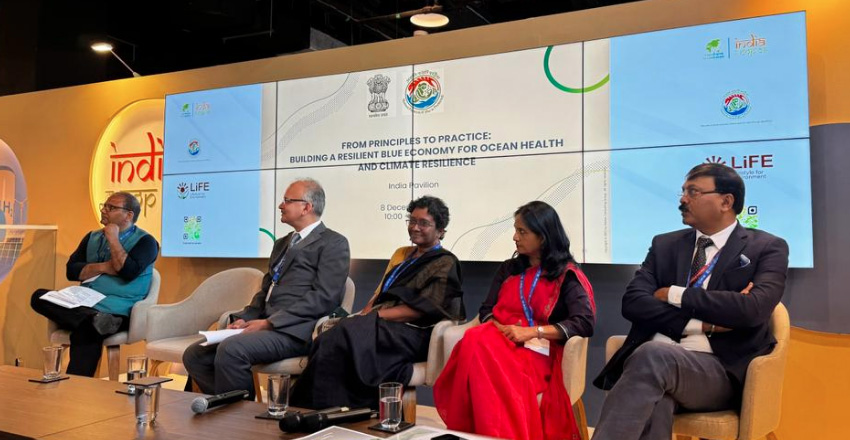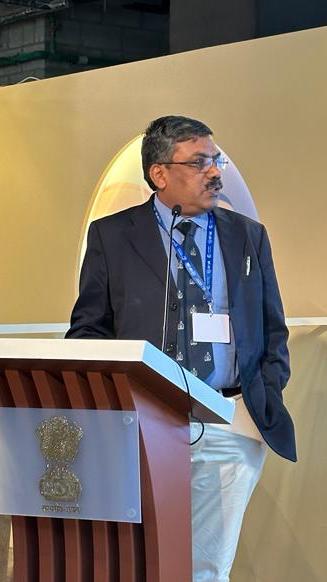Dubai: In a step toward enhancing the climate resilience of coastal communities, the State Government has been implementing a community-based action plan with an aim of making coastal communities more climate resilient.
While participating in India’s efforts on “Building a Resilient Blue Economy for Ocean Health and Climate Change K Murugesan, Director Environment Odisha and Member Secretary Odisha State Pollution Control Board presented the Case Study on “Enhancing Climate Resilience Of India’s Coastal Communities.
Dr.Murugesan said that the Government of Odisha in collaboration with the Government of India and the Green Climate Fund has been implementing “Enhancing Climate Resilience of India’s Coastal Communities project in Ganjam, Puri, Kendrapara and Balasore districts across 7 landscapes.
Director Environment Dr.Murugesan said that the project is in line with the priorities set under the National Action Plan on Climate Change and the State Action Plan on Climate Change of Odisha.
Over 18,94,700 people of 1906 villages in 339 GPs of the four coastal districts have been covered under the project, which is being implemented following an ecosystem based and community driven approach and would act as a proof of concept for mainstreaming climate change concerns into development plans and policies for both the public and private sector.
The project will contribute towards the ongoing efforts of the State Government in addressing the impacts of the climate induced hazards and disasters on the vulnerable coastal communities particularly women and children by improving their resilience against extreme weather events and enhancing their adaptive capacity through provision of climate adaptive livelihood activities.
The project is in line with the priorities set under the National Action Plan on Climate Change and the State Action Plan on Climate Change of Odisha. The achievements of this project would also add towards meeting India’s Nationally Determined contribution (NDCs) and is also expected to shape the direction of the National Coastal Mission, Dr.Murugesan said.

Restoration of coastal ecosystems including mangroves, saltmarsh, sea grass and watershed development has been undertaken in the project. The State is also implementing climate adaptive livelihood activities and strengthening governance and Institutional framework for climate resilient management of the coastal areas.
The project is being implemented in four departments—Forest, Environment and Climate Change, Fisheries and Animal Resource Development (FARD), Agriculture and Farmers’ Empowerment and Mission Shakti.
In the seven target landscapes of the four coastal districts, communities are collaborating closely with the project in a co management approach, both as recipients of work opportunities in restoration efforts, and as ongoing partners in maintaining the resource in a healthy condition.
Site restoration protocols are being discussed for each site between the project and community structures to clarify community roles in co-management and arrangements on sustainable harvesting. This will contribute to long-term sustainability of project interventions, Dr.Murugesan said.


